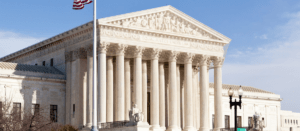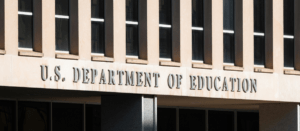There is a difference between exposing students to different ideas and actively promoting ones that are contrary to American values. It is about time that the White House used its executive power to make that delineation clear and ensure American colleges remain focused on education rather than indoctrination. Concerned Women for America (CWA) applauds the Trump Administration for taking bold steps toward that goal.
The Trump Administration has been using the power of the purse to force universities to change policies that have for too long tolerated, and in some cases even encouraged antisemitism. If they fail to take considerable action, they risk losing considerable federal funding. Though many of these schools claim to be addressing the issue, the number of incidents of on-campus antisemitic attacks during the 2024-2025 school year was the highest it has ever been, at 2,334 reported attacks. Leaving the schools to their own devices is not working.
The naysayers decry the White House’s action, citing vague notions of free expression and freedom of thought, while ignoring clear constitutional guidelines. They argue that barring schools from funding will hurt research efforts at higher education institutions. But as more of those schools ink deals with the Administration, it turns out that money is a powerful tool to encourage these institutions to promote American values and not the radical ideologies that have been allowed to run rampant for years.
The first school to come to its senses and take up the Administration’s demand to deal with the rise in antisemitism on campus was Columbia University. It announced earlier this month that it had reached a settlement with the Trump Administration over the federal investigations into its numerous civil rights violations. Some of these investigations included incidents that received national press, such as the takeover of Columbia’s Butler Library by pro-Palestine protestors. But numerous reports of harassment and assaults had been filed by Jewish students over the past year and a half, without any meaningful action taken by the university to address them. With the tacit approval of university leadership, Jewish students were frequently deprived of equal access to college resources and spaces and were living and learning in an environment hostile to their very presence.
In June, the Administration announced that Columbia had clearly violated the civil rights of its Jewish students and educators. With no grounds to fight the investigation’s findings, Columbia agreed to a settlement deal. They would pay a $220 million fine and make multiple policy changes, under the watch of an independent monitor, to end the on-campus harassment of Jewish students. In return, the administration will drop its investigations and restore the nearly $400 million in federal funds it had cancelled back in March.
Not only is this good news for Columbia students who have been the subject of intimidation, threats, and discrimination, but this settlement by one of the nation’s most egregious enablers of antisemitic activities signals that other colleges better follow suit with their own agreements.
Which, fortunately, they have. Brown University faced similar investigations into its own enabling of on-campus antisemitism. This included the school’s board publicly considering divesting from Israel to appease on-campus protestors. The school also faced investigations into its policies that allow trans-identifying men to compete against women in sports. After the Columbia deal was inked, Brown made their own settlement with the administration, agreeing to pay $50 million to state work force programs. Brown faced an even more significant funding loss, with the potential of $510 million worth of grants being permanently cancelled.
The two most high-profile schools yet to reach an agreement with the White House are Harvard University and University of California Los Angeles (UCLA). While most of the Ivy League began negotiations as soon as the White House threatened to cancel their federal funds, Harvard responded by bringing their own lawsuit against the Administration. They argue that what they are being asked to do – reform programs with a history of antisemitism and implement merit-based admissions policies, among other reasonable asks – is an attack on its “academic freedom.” At this point, making a deal with President Trump will look like Harvard is surrendering, so we can expect them to continue to fight. But the recent record of other colleges doing just that does not bolster Harvard’s cause.
As for UCLA, an agreement with them would set a new precedent. Unlike the Ivy Leagues, UCLA is a public school, part of the broader University of California system that oversees various other state colleges. While the Administration has investigations into a number of public schools, UCLA is seen as the standard for free speech and freedom to protest. If they settle with the White House, it will set the stage for the other public universities and systems.
As a public school in a progressive state, with donors, board members, and supporters who stand against acquiescing with the White House’s demands, it remains to be seen if a deal will happen. But recent events have not worked in UCLA’s favor. Last week, the school openly acknowledged its weak response to antisemitism by agreeing to pay $6 million to settle a lawsuit brought by three Jewish students who alleged that the school violated their rights and allowed for antisemitism on campus during the pro-Palestine encampment in 2024. That was before the Department of Justice announced its own findings into the college’s policies and that federal agencies were canceling $300 million worth of grants to the school. Having already agreed to settle in one case regarding antisemitism on campus, the college has little in way to fight back against the Administration’s findings.
While these settlements are no guarantee that colleges will suddenly become less radical, they do prove that the incentive of federal grants is a powerful way to encourage schools to move in the right direction. Yes, college students should feel free to express their opinion, to protest when they feel its right. But that should never come at the expense of another student’s safety, or their ability to access college resources or feel secure walking to class. College administrations have a duty to ensure that their campuses are havens for all students to pursue knowledge and debate ideas, but to also make clear the difference between speech that is true and that which is evil.
We at Concerned Women for America are grateful for the lengths that this Administration is going to fight the scourge of antisemitism and to restore American education as the beacon of true freedom it once was.






